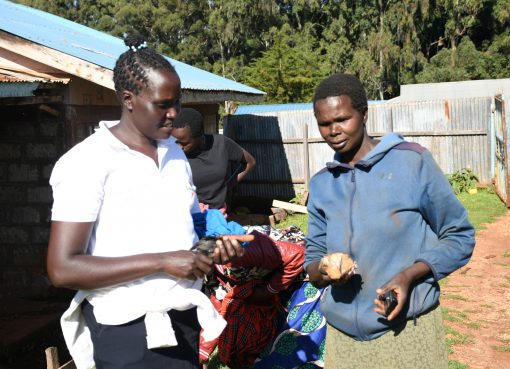The National Cereals and Produce Board (NCPB) has mooted a plan to replace its aged infrastructure at an estimated cost of Shs.1.8 billion.
NCPB chairman Mutea Iringo said that the move is aimed at increasing volumes for commercial trading commodities as they seek to strengthen the organization which has transformed from a non-performing institution to embracing the new trajectory focusing on commercial activities and utilization of resources by prioritizing income generating enterprises.
Speaking on Thursday during a press briefing at the NCPB headquarters in Nairobi, Iringo said part of their success story is that they have been buying maize for the commercial wing of NCPB at Shs.2, 700 per 90kg bag and paying within two days which has led to sustained good market price for the farmers.
“We have increased the number of Aflatoxin Testing Labs to seven to ensure food safety; we have also bought modern dryers to assist farmers in drying when they harvest in wet seasons,” said the chairman.
Iringo said that they have been able to complete payment of all pending bills to farmers, transporters and millers as well as forging strong business partnerships with new products offering like Aflasafe.
“We also recruited a new Managing Director Mr. Joseph Kimote together with four other senior managers through a competitive process. The recruitment brought the right skills required for the transformation of the organization and proper leadership talent. We also confirmed six Managers who had acted for over ten years through an internal competitive process,” explained Iringo.
He said that the turnaround momentum was given more impetus by the Cabinet directed reforms on NCPB and the Strategic Food Reserve (SFR) under the auspices of the Agricultural Sector Transformation and Growth Strategy (ASTGS) 2019-2029 policy.
“The reforms recognize the need to revitalize the commercial trading activities of NCPB as well as handling of the National Food Reserve functions together with supporting the Food Balance Sheet Committee activities,” said Iringo.
He added that they have entrenched the reforms as directed by the Cabinet in NCPB with the creation of divisions namely the Trading Division and National Food Reserve Division. This has now made it possible for the additional mandate of the National Food Reserve to be undertaken by NCPB. However, full operationalization of the divisions is limited by funding challenges.
Iringo said that some of the challenges they face include eroded working capital because of the outstanding loan with KCB which is restricting commercial trading, dilapidated infrastructure some of which were installed in 1970’s, aging workforce with an average age of 50 years, slow uptake of the Warehouse Receipt System (WRS) among others.
“Lack of banking facilities to supplement the working capital on commercial trading due to the outstanding KCB Bank Ltd loan currently at Shs.7 billion is one of our greatest challenge,” said Iringo.
by Wangare Ndirangu





